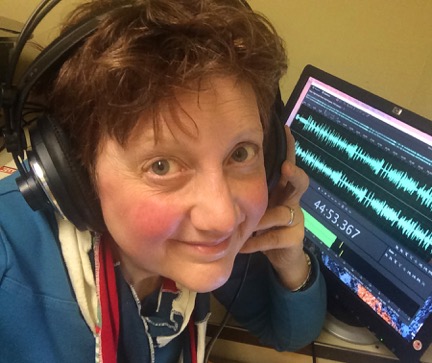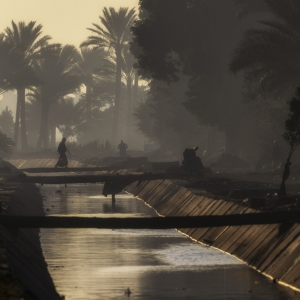Welcome to “What’s Up With Water” – your need-to-know news of the world’s water from Circle of Blue. I’m Eileen Wray-McCann.
Scientists are nearing a breakthrough in understanding the world’s water. Later this week, a new water-measuring satellite will launch from Vandenberg Space Force Base, in California. The SWOT mission, as its called, will measure weekly changes in the world’s major rivers, lakes, wetlands, and oceans. The mission will launch before sunrise on December 15. It’s a joint venture between NASA and the national space agencies of France, Canada, and the United Kingdom. It will gather extensive data. For oceans, the satellite will track small-scale currents and eddies that transport nutrients, salt, and heat. This information will help define the ocean’s role in a changing climate. For rivers, the instruments will map how floods move across the entire watershed, important for modeling future inundations. The satellite will also break new ground with relatively accurate estimates of the water flowing in the world’s major rivers, lakes, and reservoirs. Thomas Zurbuchen, head of science at NASA, said this information is especially critical for managing water in an era of sharp droughts and floods. As he put it, “The currency of the future is water.” The satellite will start transmitting data in March. But it won’t be usable until late next summer at the earliest. It must first be verified for accuracy, and that requires a lot of footwork on the ground. Scientists will fan out across the globe to measure lake levels and river flows to compare their data to what the satellite is seeing.
Last week, the United Nations held a special summit to highlight the importance of groundwater, the source for about half of the world’s drinking water. UN delegates voiced concerns about the unrestrained extraction of a scarce resource. They also emphasized the significance of groundwater basins that straddle multiple countries. Shared groundwater systems, once an obscure issue, are now a top priority, especially as the world’s rivers are stressed by a warming climate. Scientists have identified 468 of these transboundary groundwater basins. Nearly every country has one. The main concern is conflict over their use. Groundwater has not been governed like surface water has. Many rivers are subject to legal rulings, some of which go back decades. But there are few treaties that govern how groundwater is apportioned. Within the UN and other global organizations there is significant support for cooperation over shared groundwater. The UN General Assembly has issued several resolutions calling for these actions. According to policy experts, though, there is some hesitation at the local and national levels, because public officials are wary of ceding control to regional governing bodies.
In the United States, a federal judge has ordered an energy company and an Indian tribe to develop an emergency plan to prevent spills from an oil pipeline that runs across the tribe’s reservation. The company is Enbridge, which operates Line 5, a nearly 70-year-old pipeline that moves oil and natural gas liquids across the Great Lakes region. The tribe is the Bad River Band of Lake Superior Chippewa, which sued Enbridge in 2019 to remove a section of Line 5 that crosses its lands. The company agreed and plans to build a $450 million pipeline around the reservation. Wisconsin Public Radio reports that the two sides are supposed to discuss adding more shutoff valves or other emergency measures in case of a spill. The worrisome section of pipe is located near the Bad River. The federal judge who ordered the emergency planning did not make a ruling to shut down Line 5. Tribes and environmental groups have been advocating for the closure of the pipeline.
And that’s What’s Up With Water from Circle of Blue, where we invite you to join us as we raise support for what we do. Right now, your tax-deductible gift goes twice as far, thanks to NewsMatch – it’s a challenge grant matching your one-time or monthly donation dollar for dollar. There’s only a couple weeks left – so find out more – and make a difference at
circleofblue.org. This is Eileen Wray-McCann. Thanks for being here for us.






